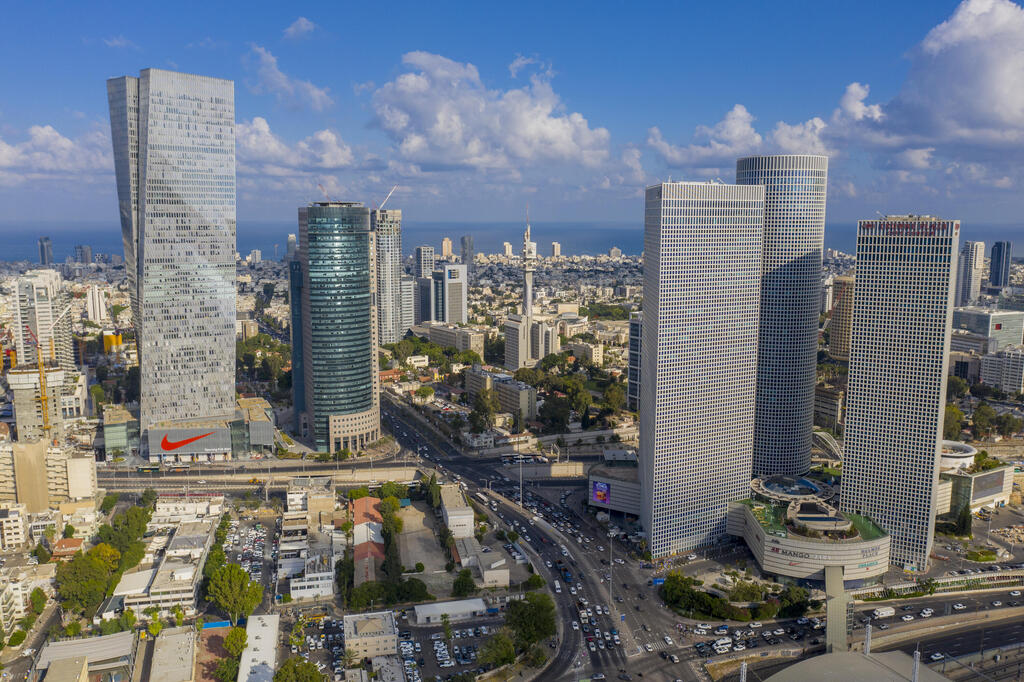
Investments in Israeli startups fall for a seventh straight quarter
Tech funding dropped by 63% over the first three quarters of 2023 compared to the first nine months of the previous year
The recent series of acquisitions in Israel, as well as the notable investments in companies such as Cato Networks and HiBob, created the illusion that Israeli high-tech is back on track. However, when assessing the first nine months of the year as a whole, it is clear that the state of most of the high-tech industry is extremely difficult.
According to data published by the Start-Up Nation Policy Institute (SNPI), the last quarter marked the seventh consecutive quarter of decreasing investments. Total investments in the third quarter of 2023 amounted to approximately $1.7 billion, a 40% decrease compared to the third quarter of 2022. Total investments in the first three quarters of 2023 were 63% lower compared to the corresponding period last year, standing at $5.6 billion, compared to $14.7 billion in the first nine months of 2022 and $19.8 billion in the first nine months of 2021.
Another interesting fact about the third quarter is that if it weren't for the rounds of four companies (including HiBob and Cato Networks, which together raised over $400 million), the total investments would have only been $1 billion.
One alarming phenomenon in the first nine months of the year was a significant decrease in the activity of foreign entities in Israel. In 2023, only 56 foreign funds invested in Israel, compared to 97 in 2022 and 95 in 2021.
According to the estimates of the authors of the study, the reasons for the sharp decline are multifaceted. Some are due to the global economic slowdown, some to the inability of VCs to raise funds to continue their activities, and some to the political instability in Israel and the uncertainty of the legal situation.
The blow that Israel has suffered is harder than in the rest of the world. In the past, Israel was less affected by economic crises and sometimes even emerged from them stronger. Now the situation is reversed, with the damage to Israeli high-tech greater than in Europe and the United States. According to SNPI data, investments in Israel decreased by 63% in the first nine months of the year, compared to approximately 48% and 43% in Europe and the United States, respectively. The severe damage to Israel is likely related to the legal situation, which created uncertainty among many investors who preferred to remain on the fence.
Over the first nine months of the year, only one unicorn was created in Israel, compared to 58 worldwide. Many companies today are hesitant about being labeled as unicorns, but this fear also hinders their recruitment efforts, and many investors are cautious about committing large sums of money to a single company, as was the case during the bubble years.
This trend is evident in the decrease in the number of giant funding rounds of over $100 million. In Israel, there was a dramatic decrease in the number of such rounds in 2023, with only 11 compared to 55 and 36 in the corresponding period in 2021 and 2022, respectively. Of these 11 companies, only three have headquarters in Israel, with the rest having their management concentrated in the United States.
The authors of the study estimate that due to the depth of the crisis, even a clear statement regarding the cessation of legislation will not instantly return the situation to its previous state. There is a real danger that both investors and entrepreneurs will adopt a wait-and-see approach as it seems that the lack of political clarity is expected to continue for many more months.
During this period, the interest rate will remain high, making it more difficult for many companies to raise money. Companies that had ambitions of growth and becoming large and independent will seek buyers, even at prices they were not willing to consider in the past. Unfortunately, many companies may be forced into receivership during this period. Many investors will also relinquish their holdings in companies they previously invested in due to cash constraints. The ability of many of them to raise a new fund or increase their funds through small sub-funds will be limited.
This could result in Israel lagging behind in the rapidly advancing field of artificial intelligence (AI). Without significant investment in the AI sector in Israel, including substantial investments in both young and established companies, Israel risks losing its position in this crucial area. Although the Israeli government has been attempting to convey support for AI in recent months, it is not yet clear whether it fully comprehends the urgency of the situation.
Uri Gabai, CEO of SNPI, expressed concern, saying, "This is another weak quarter for Israeli high-tech, which continues to suffer from the global slowdown and local instability. It appears that the entire year 2023 will end with about half of the investments in Israeli startups compared to 2022. As long as the current situation continues, and without a government policy that renews the long-standing partnership with the industry and restores certainty to the economy - there is a great fear that Israeli high-tech will lose its leading position."
Other notable rounds in September included UBQ Materials, which develops advanced materials made from waste, that closed $70 million in funding, and ThetaRay, which develops AI-powered secure global payments solutions and raised a $57 million growth round.
Additional Series C rounds announced in September included Ibex Medical ($55 million), floLIVE ($47 million), SQream ($45 million), and Prisma Photonics ($20 million).














